Yes, growth hormone needs to be refrigerated. Growth hormone is a delicate substance that must be kept at a precise temperature in order to maintain its effectiveness and prevent degradation.
Growth hormone is a vital treatment option for individuals with growth hormone deficiency and other medical conditions. It is a delicate substance that must be stored and transported with the utmost care. Failure to store growth hormone at the appropriate temperature can result in the loss of its potency, which can impair its ability to function effectively.
For this reason, it is crucial to ensure that growth hormone is kept at the correct temperature throughout the entire process, including transportation, storage, and administration.
In this article, we will explore whether growth hormones need to be refrigerated, the importance of refrigerating growth hormones, and the various considerations to keep in mind when handling this delicate substance.
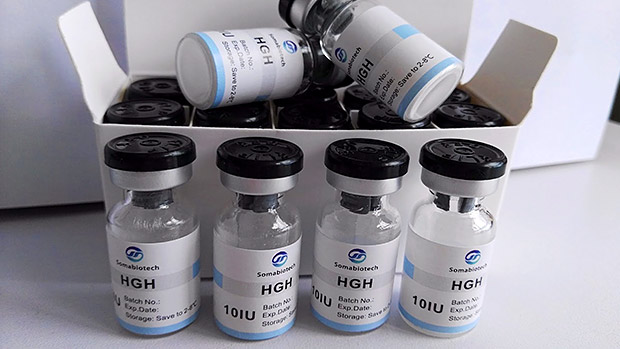
What Happens If Growth Hormone Is Not Refrigerated?
The consequences of leaving growth hormone unrefrigerated depend on several factors, including:
- Type of growth hormone: Some brands, like Norditropin FlexPro pens, can be stored at room temperature after the first use for up to 21 days (or 4 weeks in the fridge). But most other formulations of growth hormone require refrigeration at all times.
- Duration of exposure: Briefly leaving growth hormone out might not significantly affect its potency. However, prolonged exposure to room temperature or higher can decrease its effectiveness or even render it completely useless.
- Temperature: The higher the temperature and the longer the exposure, the greater the potential for degradation.
Here’s what may happen to unrefrigerated growth hormone:
- Loss of potency: The protein molecule of growth hormone is fragile and can break down at higher temperatures. This reduces its ability to bind to receptors and exert its effects.
- Aggregation: The protein molecules can cluster together, forming inactive aggregates. This makes it even harder for the hormone to work properly.
- Bacterial growth: Although growth hormone itself is not a breeding ground for bacteria, the preservatives in the solution may degrade faster at room temperature, increasing the risk of contamination.
If you’re concerned about whether your growth hormone has been compromised, don’t use it. Consult your doctor or pharmacist for guidance. They can assess the situation and advise you on whether to continue using the medication or discard it and get a new supply.
How Long Does HGH Last Once Mixed?
The shelf life of Human Growth Hormone (HGH) once it is mixed depends on the specific product and the manufacturer’s instructions. Generally, mixed HGH solutions are intended for immediate use or have a limited duration for storage.
It is crucial to follow the guidelines provided by the manufacturer to ensure the effectiveness and safety of the medication. Improper storage can compromise the potency of HGH.
Does Genotropin Need to Be Refrigerated?
Yes, Genotropin, like many other growth hormone medications, typically needs to be refrigerated. Proper storage is essential to maintaining the stability and effectiveness of the medication. Always follow the specific storage instructions provided by the manufacturer. Deviating from the recommended storage conditions can affect the potency and therapeutic benefits of Genotropin.
Does somatropin need to be refrigerated?
Yes, somatropin, a synthetic form of human growth hormone, typically needs to be refrigerated. It is crucial to follow the specific storage instructions provided by the manufacturer to maintain the stability and effectiveness of the medication. Improper storage can compromise the potency of somatropin.
Growth Hormone Storage Temperature
The storage temperature for growth hormone medications, including HGH products like Genotropin, is usually specified by the manufacturer. In most cases, these medications are required to be stored in the refrigerator.
The recommended temperature range is typically between 36°F to 46°F (2°C to 8°C). It is crucial to adhere to these storage guidelines to ensure the stability and efficacy of the growth hormone.
Genotropin Left Out of Fridge
If Genotropin is left out of the fridge for an extended period, it can compromise the stability and effectiveness of the medication. Deviating from the recommended storage conditions, especially if it involves exposure to elevated temperatures, may lead to a loss of potency.
It is important to consult the product’s guidelines and, if in doubt, seek advice from a healthcare professional or the manufacturer to determine whether the medication is still safe to use after being left out of the fridge.
What’re the General Requirements of Medication Storage?
When it comes to medications, proper storage is essential to maintaining their efficacy. Growth hormone is no exception, as it requires careful storage to ensure that it remains effective.
Here, we will discuss the storage requirements for growth hormone based on its sensitivity to temperature and the impact of improper storage on its efficacy.
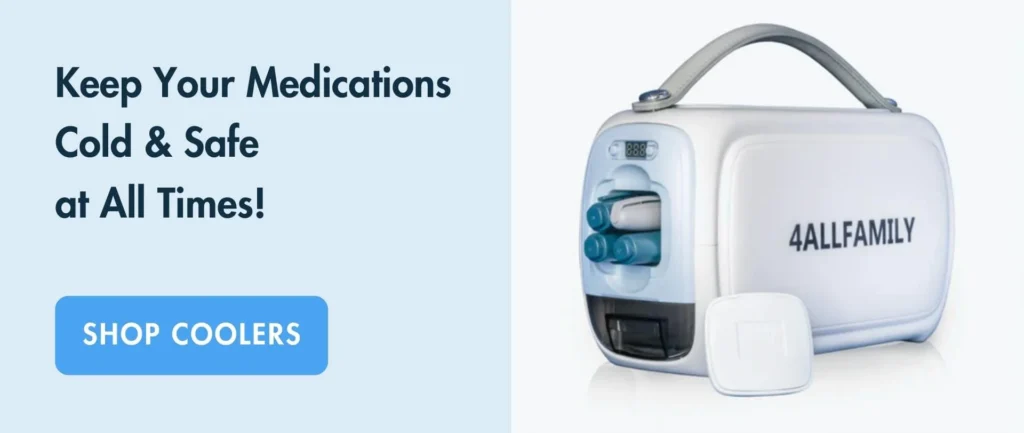
General Medication Storage Guidelines
Proper medication storage is essential to maintain the drug’s effectiveness as well as prevent any potential harm to the patient.
The following is a list of general storage guidelines that healthcare professionals advise for medication storage:
- Store away from direct sunlight and heat
- Keep in a dry and cool place, preferably between 68 and 77 degrees Fahrenheit
- Store medications away from humidity and moisture
- Keep medications out of children’s reach
- Store medications in their original packaging and containers
- Discard expired medications
Impact Of Improper Storage
Improper storage can lead to a decrease in drug efficacy, which can affect the patient’s treatment. For growth hormones, improper storage can lead to a decrease in potency, which could lead to inadequate control of growth-associated disorders.
The following are some common causes of improper storage:
- Exposure to high temperatures or sunlight
- Storage in a moist or humid environment
- Failure to keep medications in their original containers
- Storage beyond the expiration date
The Role Of Temperature In Medication Efficacy
The role of temperature in medication efficacy is significant, and it affects the stability of most drugs, including growth hormones. Temperature affects the chemical composition of the drug, and exposure to higher temperatures can lead to degradation and a decrease in potency.
For growth hormones, prolonged exposure to temperatures above body temperature can lead to a decrease in their effectiveness, which could impact the control of growth-associated disorders.
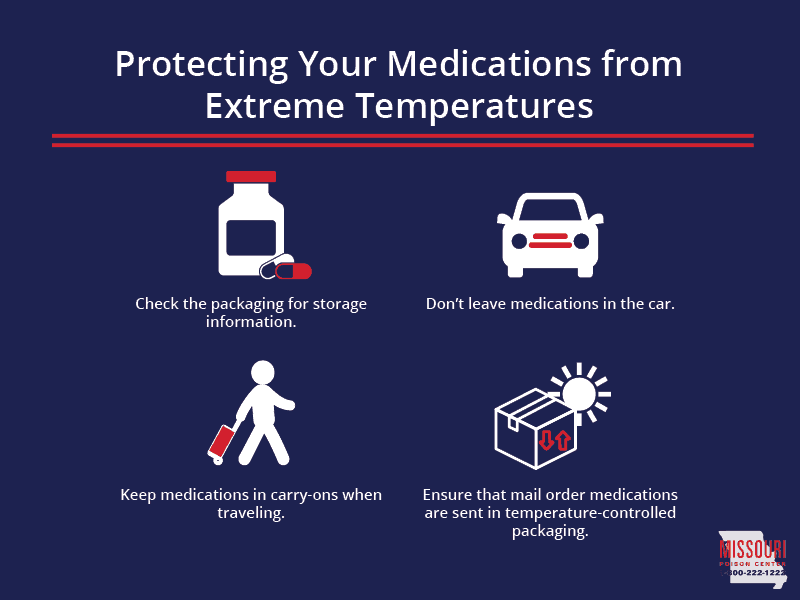
Proper storage of medications, including growth hormones, is crucial to maintaining their efficacy. Storage guidelines must be followed to ensure that the drug is stored appropriately, preventing unnecessary degradation and harm to patients.
Patients and healthcare providers should be aware of the storage requirements for any medication and follow guidelines to optimize treatment outcomes.
How Is Growth Hormone Affected By Temperature?
Storing growth hormone at the right temperature is crucial for maintaining its potency. The ideal temperature range for storing growth hormone is between 36°F and 46°F (2°C and 8°C).
If exposed to extreme temperatures, the growth hormone may lose potency, and the medication may become ineffective. Hence, it is vitally important to store the medication in a cool and dry place, away from direct sunlight.
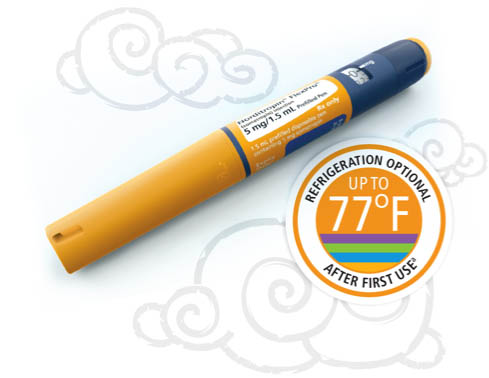
Factors Impacting The Storage Temperature Of Growth Hormone
Several factors can impact the temperature requirements of growth hormones. Below are some of the key points to consider:
- Humidity levels: High humidity levels can reduce the effectiveness of growth hormones. Hence, it is essential to store the medication in a dry area.
- Duration of storage: The longer the duration of storage, the more critical it becomes to store growth hormone in a cool and dry place.
- Storage container: Growth hormone should be kept in the container it came in. The container should be kept closed when not in use to maintain the temperature requirements of the medication.
The Impact Of Temperature On Growth Hormone Potency
The temperature has a direct impact on the potency of growth hormones. If exposed to high temperatures, the medication may lose some of its potency, reducing its effectiveness. Here are some of the crucial points to keep in mind:
- The ideal temperature remains between 36°F to 46°F (2°C to 8°C).
- If the temperature goes above or below the ideal range, growth hormone may start losing potency.
- In extreme cases, growth hormones may become ineffective if exposed to higher temperatures.
Therefore, it’s vital to follow storage guidelines and keep your growth hormone at the suggested temperature.
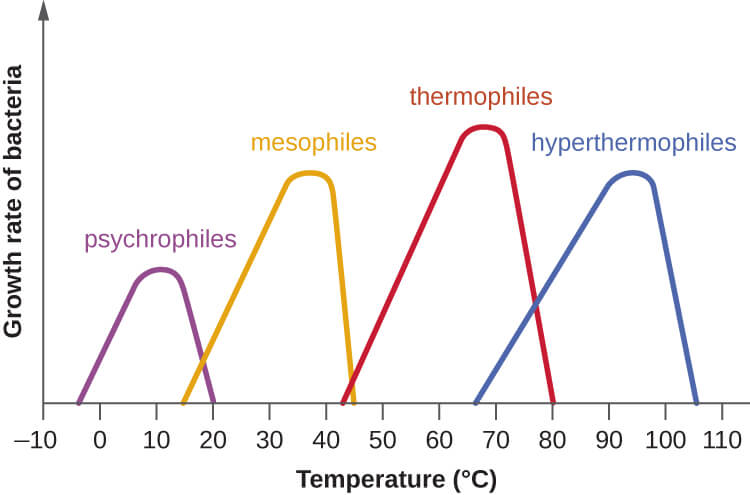
Storing Growth Hormone: Best Practices
Growth hormone is a delicate substance that requires special storage conditions to maintain its potency. Correct storage and temperature maintenance are imperative to ensure that the hormone is effective when administered.
Here, we will discuss recommended storage methods, strategies for maintaining the required temperature range, and dos and don’ts for growth hormone storage and maintenance.
Recommended Storage Conditions for Growth Hormone:
- Store growth hormone in the refrigerator at a temperature between 36°F to 46°F (2°C to 8°C).
- Keep the hormone away from direct sunlight, heat, and moisture.
- Store the hormone in its original packaging to protect it from light and moisture.
- Avoid freezing the hormone.
How Do You Maintaining the Required Temperature:
- Use a storage unit that has a compartment solely for medical products.
- Avoid placing the hormone on the door of the refrigerator, as this area is prone to temperature fluctuations.
- Use a temperature monitoring device or thermometer to check the temperature of the refrigerator and make adjustments if necessary.
- Keep the hormone at the back of the refrigerator, which is usually the coldest area.
Dos and Don’ts for Growth Hormone Storage and Maintenance:
Dos:
- Keep an adequate supply of growth hormone while adhering to the prescribed dosage.
- Always check the expiration date before administering the hormone.
- Properly dispose of the hormone if it’s beyond the expiration date.
- Consult your pharmacist or healthcare provider for guidance on the proper storage and administration of the hormone.
Don’t:
- Use growth hormone that is not consistently stored at the required temperature range.
- Allow the hormone to come into contact with light, heat, or moisture.
- Freeze the hormone.
- Use the hormone beyond the expiration date.
Proper storage and temperature maintenance of growth hormone is essential to ensuring the hormone’s effectiveness when administered.
Following the recommended storage methods and dos and don’ts is crucial to enabling the hormone to retain its potency, thus avoiding any unnecessary risks.
Common Misconceptions And Concerns
Growth hormone is a vital hormone produced by the pituitary gland that helps in promoting growth, cell production, and regeneration. Growth hormone deficiency is a condition when the pituitary gland does not secrete sufficient amounts of growth hormone needed for a child’s or adult’s proper growth.
Recombinant human growth hormone (RHGH) is a synthetic hormone used to treat this condition. Many people wonder whether growth hormone needs to be refrigerated or not. We will discuss common misconceptions and concerns regarding the storage of growth hormones.
Myths About the Storage of Growth Hormone:
- Growth hormone does not need to be refrigerated.
- It can be stored at room temperature, and there is no harm in doing so.
- Leaving the growth hormone out of the refrigerator for a day or two will not affect its efficacy.
The Truth Behind Inadequate or Improper Storage:
- Improper storage of growth hormone can lead to degradation of the protein hormone, reducing its efficacy and making it ineffective in treating the condition.
- Growth hormone should be stored in the refrigerator between 36°F and 46°F (2°C and 8°C) before and after reconstitution, as recommended by the manufacturer.
- Exposure to heat, light, contamination, or physical damage can also affect its quality and effectiveness.
How to Ensure the Potency and Efficacy of Growth Hormone:
- Always check the expiration date before using the hormone.
- Store the growth hormone in its original packaging in the refrigerator, away from light, heat, and moisture.
- Do not freeze the reconstituted hormone.
- Use the hormone within the specified time frame once it is reconstituted, as its efficacy decreases after a certain period.
- Transport the hormone carefully, maintaining the temperature range to avoid damage.
- Always consult a healthcare professional if you have any doubts or concerns about the storage of growth hormones.
The potency and efficacy of growth hormone can be affected by improper storage, leading to reduced effectiveness and potential harm to the patient.
Therefore, it is vital to follow the manufacturer’s recommended storage instructions and take proper precautions to ensure the safety and efficacy of the hormone.
FAQs: Does Growth Hormone Need To Be Refrigerated?
Is Refrigeration Required For Growth Hormone?
Yes, growth hormone must be refrigerated in order to maintain its effectiveness and stability. When stored at the appropriate temperature, it can stay potent for up to several weeks.
Can Growth Hormone Be Stored At Room Temperature?
No, growth hormones should never be stored at room temperature. Room-temperature storage can cause the hormone to degrade quickly, which can severely impact its effectiveness.
How Should Growth Hormones Be Stored?
Growth hormone should be stored in the refrigerator at a temperature between 2 and 8 degrees Celsius. It should be kept in its original packaging and away from light, heat, and moisture.
What Should I Do If My Growth Hormone Has Been Left Out Of The Refrigerator?
If your growth hormone has been left out of the refrigerator for an extended period of time, it should be discarded and a new vial obtained. This is because the hormone will have lost its potency and will not be effective.
Conclusion
Considering all the above discussion, growth hormones can be stored outside a refrigerator for a limited period of time, depending on the manufacturer’s instructions. However, it is always recommended to keep growth hormone in a cool, dry place within the manufacturer’s recommended temperature range.
By doing so, you can ensure the stability and potency of the hormone. Inadequate storage or incorrect temperature can lead to the degradation of the hormone, affecting its effectiveness. So it’s wise to be careful and vigilant with the storage requirements of your growth hormone.
Lastly, you must always consult with your healthcare provider for any concerns or advice on how to store your growth hormone safely and effectively. Proper storage can enhance the shelf life of the hormone, resulting in improved health outcomes.
